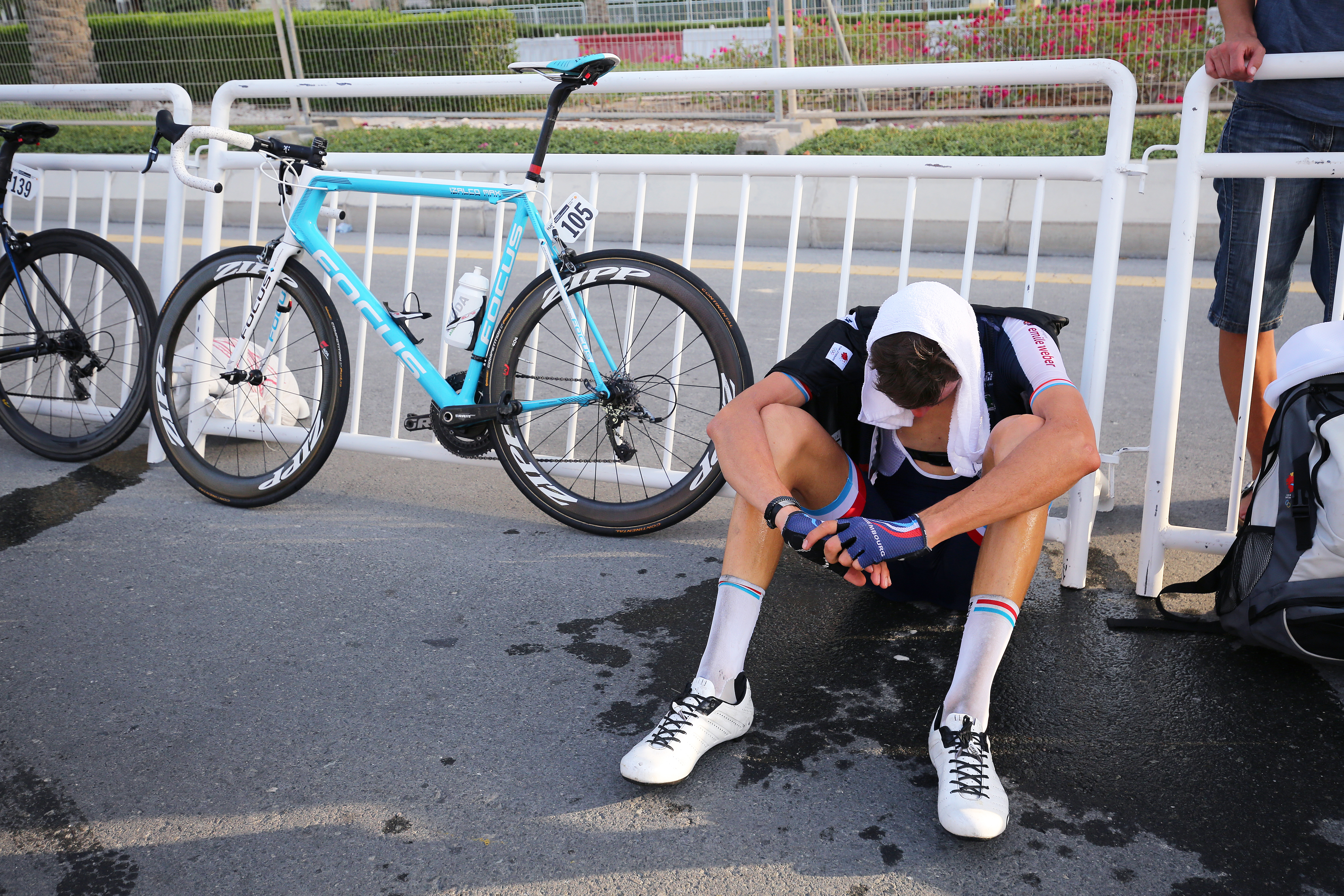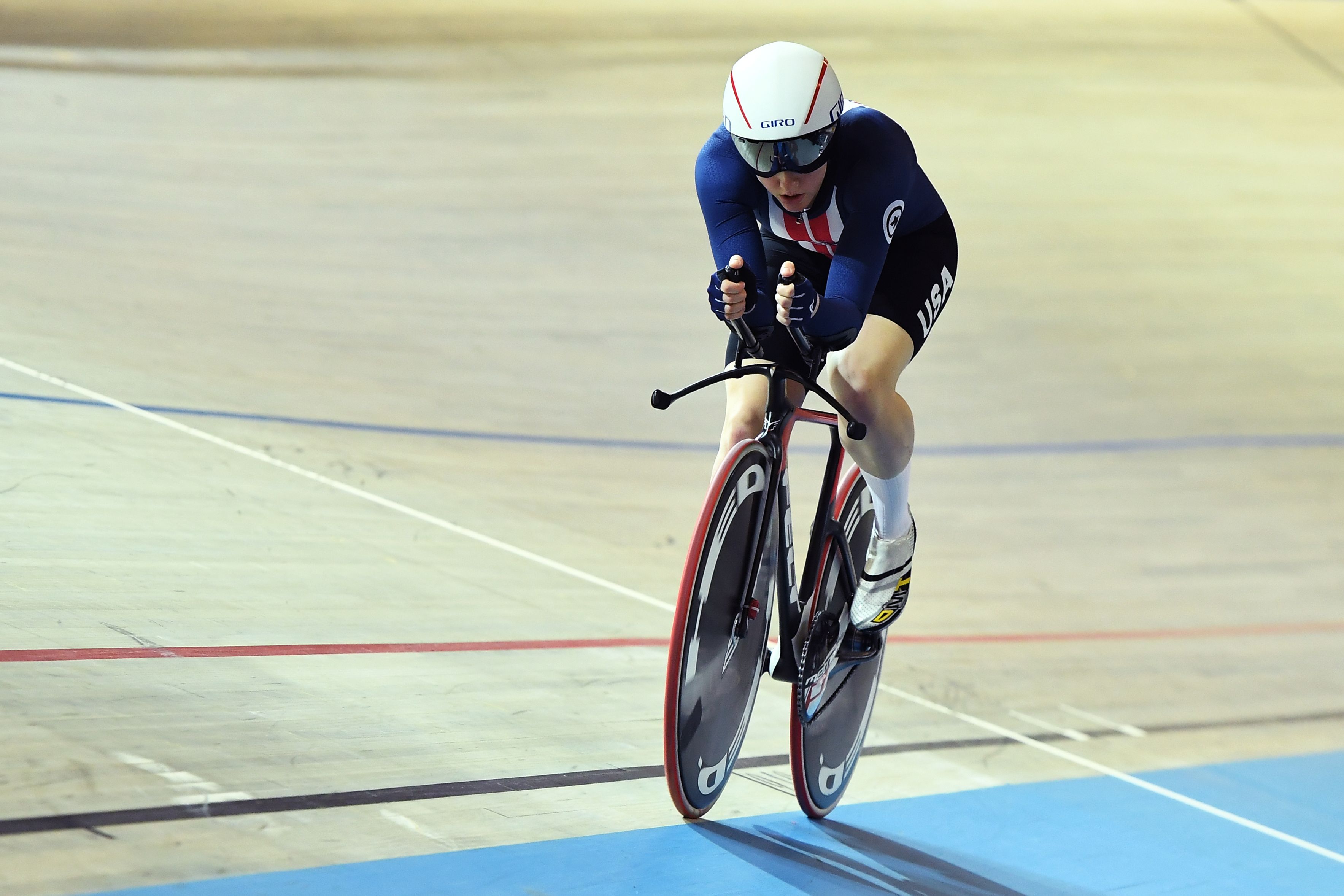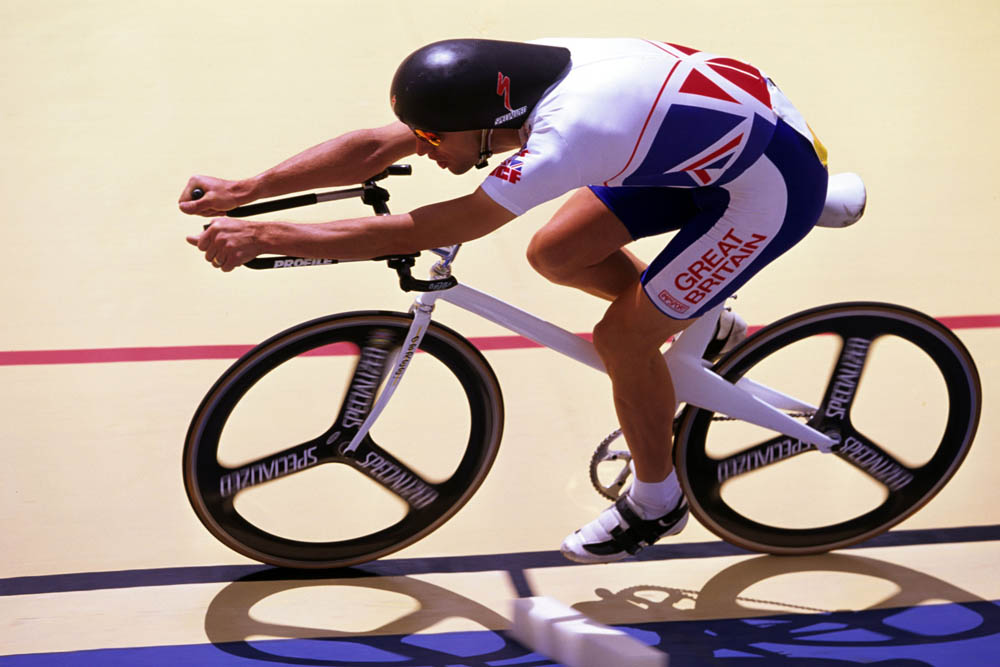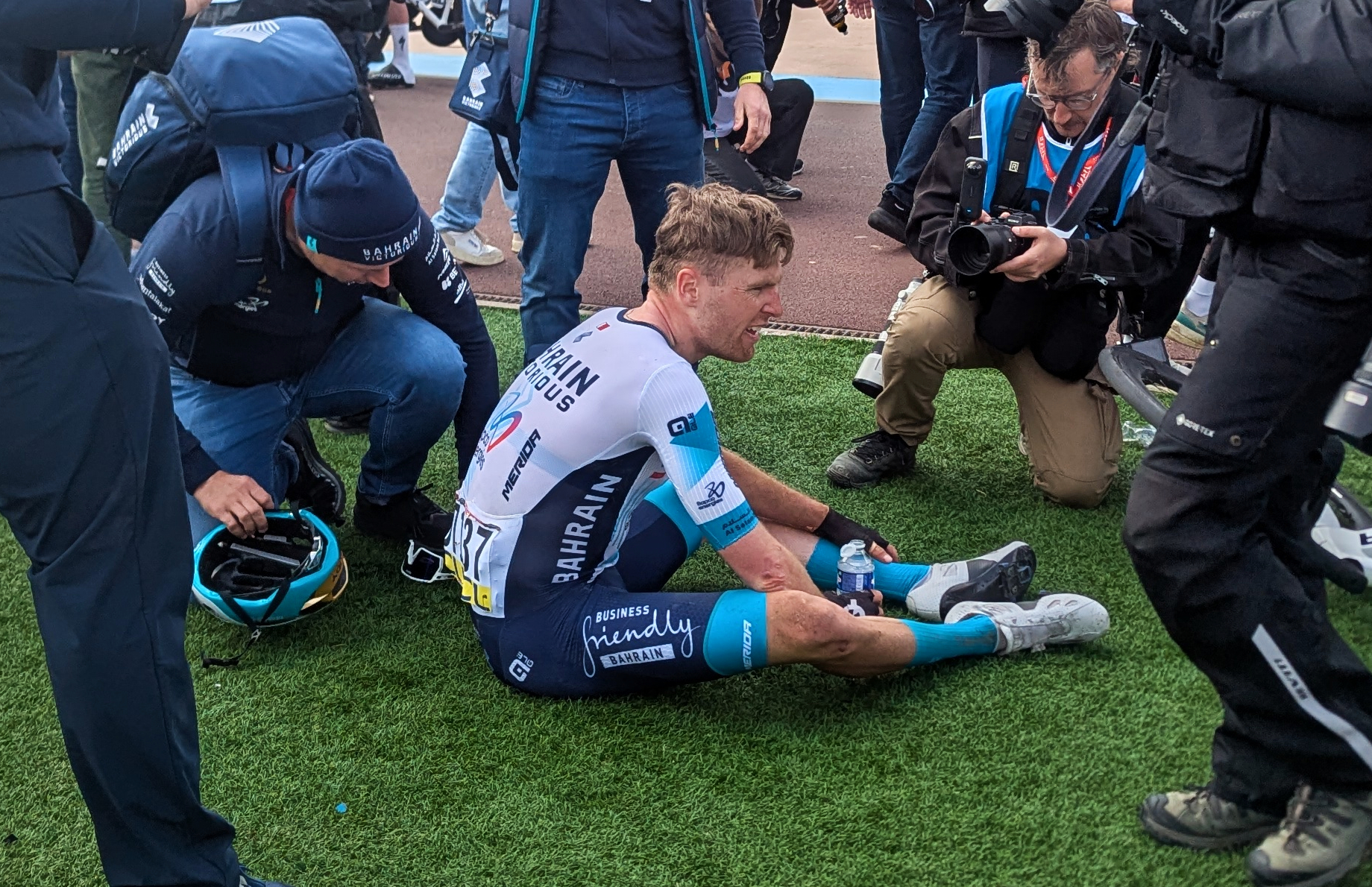Does elite cycling have a problem with mental health?
Pressure to perform can create world champions, but it can also impact mental health. We explore what's being done to protect riders, and if it's enough

Photo by KT/Tim De Waele/Corbis via Getty Images

Suffering on the pedals as pleasure and pain intertwine is a notion many cyclists can identify with. However, when the pain becomes overwhelming enough to eclipse the antithesis, alarm bells should be ringing.
Tales of depression, and suicide, within pro cycling and elite level sport have shocked its audience time and time again - leading to questions around the degree of pressure being placed upon the world's most talented sportspeople.
The news that 23-year-old track world champion Kelly Catlin had taken her own life last week triggered an outpouring of grief, and concern.
Catlin's family later said that her suicide was the second attempt she’d made on her own life, and her father Mark Catlin put her death down to a "perfect storm" of depression, concussion symptoms and overtraining.
In January this year, former track cyclist Victoria Pendleton revealed in a Telegraph interview that she'd "accumulated 1.5 times the dose of drugs" required to kill herself. Pendleton sought help, speaking to British Cycling psychiatrist Steve Peters among others.
In July 2018 snowboarder Ellie Soutter ended her life, shortly after missing a flight for a team training camp. Her father later said he thought injuries and concussion may have affected the 18-year-old's state of mind.

Commenting on the death of Catlin, former Olympic champion Callum Skinner drew on similar stories from recent years, and said that mental health needs to be elevated in its importance amongst sports teams and governing bodies.
Get The Leadout Newsletter
The latest race content, interviews, features, reviews and expert buying guides, direct to your inbox!
The recently retired rider and front of the Global Athlete movement, which aims to combat issues athletes faces in sport, said: "Catlin’s death is a tragedy. With the unfortunate passing of [snowborder] Ellie Soutter, [cyclist] Stephen Wooldridge and many more it’s time we take mental health very seriously with former and current athletes."
How are depression and cycling linked?
From the outside, our sporting heroes can seem like giants, particularly when they’re barrelling around the track at seemingly inhuman speeds or riding hundreds of kilometres a day, week after week.
However, Skinner was keen to emphasise that the same pressure that is said to form diamonds can also create cracks - and athletes have a tendency to 'be strong' instead of asking for help.
"We rightly worship our sporting heroes, we admire their strength their determination, they can seem almost super human unaffected by pressure, set backs and challenges.
"Ultimately it’s important to know that athletes aren’t always as ‘strong’ as you think. Sometimes that expectation to be super human can be a barrier for athletes seeking help," he said.

Exercise can help to ease the intensity of some mental health conditions, and their symptoms, and some studies have shown it to be as effective as taking anti-depressants.
In October 2017, the aptly named non-profit Black Dog Institute in Australia found that just one or two hours a week of exercise could help prevent depression.
Of course, it's far from a 'cure all'. Dr Michael Craig Miller, assistant professor of psychiatry at Harvard Medical School told Harvard Health Publishing: "for some people it [exercise] works as well as antidepressants, although exercise alone isn't enough for someone with severe depression."
Whilst exercise can be a force for good, Dr Josephine Perry, sports psychologist at Performance in Mind told us that when it interferes with our sense of self it can become dangerous.
“Once we take our sport seriously and it becomes a core part of our self-identity, it can create additional pressures and stresses and the exercise we once used as a coping mechanism for stress becomes part of the stress itself and adds potential mental health challenges,” she said.

Former Hour Record holder Graeme Obree has also battled with depression, which saw him attempt to take his life twice.
Speaking to Cycling Weekly in 2015, he hypothesised that the qualities required to achieve at an elite level may mean the very top layer of sports people are more susceptible to mental health problems.
“Whatever it is, the nuclear reaction that drives [athletes] on is also the thing that leaves them susceptible to being depressed," he said.
“A lot of people who suffer from depression have a tendency to have obsessive behaviour – that’s why more of them exist in the top end of sport. The sport is actually a self-medicating process of survival.”
Pressure from within
The desire to strive to be better, stronger and faster is often the element that separates the good from the great, but Dr Perry says athletes and those around them need to keep the drive for performance and perfection in check.
“When a parent calls me to work with their child on their sport psychology, or an elite athlete asks for support with coping with the pressure of their sport, one of the first things we often see is the pressure the athlete puts on themselves due to perfectionism and comparisons,” Dr Perry says.
“So often the athlete isn’t being pushed too hard by others but they are pushing themselves really hard.”
Perry lists tying personal self-esteem to success in sport, and a need to achieve perfection as warning signs, also saying that social media is playing a growing role in increasing that pressure.

“Athletes find themselves not only comparing themselves to others weekly in races but daily on Strava or Instagram,” she said.
“They compare their warts and all knowledge of themselves with a glossed up version of a competitor. If they are continually finding themselves unable to reach this impossible level of ‘perfection’ they can lose their motivation, struggle to enjoy their riding and their mental health will suffer.”
Concussion and the risks
Catlin suffered a series of crashes before her death - in October, she crashed and broke her arm, then she crashed in December and sustained a concussion.
Speaking to the Washington Post, her family linked the concussion to the deterioration of her mental health.
Her father Mark said: “After her concussion, she started embracing nihilism. Life was meaningless. There was no purpose. This was a person with depression. For her, she could no longer concentrate on her studies or train as hard.”
Sister Christine – one of three triplets including Kelly and brother Colin – said: “She couldn’t train as well as she used to. She had really bad headaches and was sensitive to light."
Father to Ellie Soutter, Tony, told the Sunday Times after his daughter's death: "She had been airlifted off the mountain about five times, each time with a head injury.
"She didn’t recognise me for seven hours after the incident. She had nasty headaches and trouble sleeping."
He added that if he'd known about the risks associated with concussion he "would have stopped her racing completely."
Direct links between Catlin and Soutter's suicides and concussion cannot be drawn at this time, or perhaps at all. However, the oft underestimated injury does need to be taken seriously.

Concussion has been linked with chronic traumatic encephalopathy (CTE), symptoms of which include changes in mood, such as frequent mood swings, depression, and feelings of anxiety, frustration or agitation.
It's not uncommon for cyclists to hit their heads during a crash - and it's important that steps are taken to avoid long term effects, we've got advice on dealing with concussion here.
Is enough being done to help athletes?
Work is being done to advance mental health care for athletes.
Perry told us that she's been asked to give "more and more" workshops to athletes on the mental health risks of elite sport, saying "it certainly feels like the specific mental health challenges of being an athlete are now being taken much more seriously.”
In 2018, the English Institute of Sport [EIS] and UK Sport, unveiled their new mental health strategy to be applied during the Tokyo 2020 cycle. The support available is on offer for World Class Funded Athletes, including those competing in all GB Olympic and Paralympic sports in the high performance system.
The strategy was developed by a mental health steering group, which included representatives from the mental health charity MIND - and part of the plan included appointing performance psychologist Dr James Bell as 'Head of Mental', alongside a Mental Health Manager and a Mental Health Expert panel.
Plans involves education around mental health for athletes, and helping national governing bodies to develop screening processes' as well as monitoring and support programmes, plus bolstered resources around the Olympics and Paralympics due to the added stress of the events.
As part of the launch, a video was released to encourage athletes to talk about mental health.
https://www.youtube.com/watch?v=hAudyKQgz9c
Head of communications at EIS, Mark Jamieson told us: "The aim of the Mental Health Strategy is to create a positive mental health environment for everyone in the UK high performance system. This is delivered through a dynamic approach that promotes positive mental health, provides education and looks to reduces the risk of mental health problems developing, alongside an early intervention approach to managing problems as they arise.
"For those athletes experiencing significant mental health problems, sports have access to the guidance of the mental health expert panel."
As well as the new programme, he explained that all World Class Programmes have centrally funded Performance Lifestyle Advisor's from the EIS, and most have performance psychologists as well as a Mental Health Referral Programme which has been available through the athlete medical scheme since 2014.
This mental health referral programme, he said, provides specialist primary and secondary care services to elite athlete for a wide range of mental health issues, such as - depression, stress, anxiety, eating disorders, obsessive compulsive disorders and addictions.
However, Skinner believes that more needs to be done to address accepted culture beliefs around strength and mental vulnerability. Without overcoming that hurdle, athletes may not seek out and receive available help.
"It’s a cultural issue with sport, you don’t want to appear ‘weak’ to your opponents, team-mates and fans,” the team sprint gold medallist said.
“Teams have a responsibility to ensure mental health care is provided as well as or even better than physical care.
"All stakeholders in sport have a responsibility to challenge our culture to not see illness or valuing welfare as weakness.”
Skinner’s new movement, Global Athlete, will aim to help further the work he says needs to take place – and he said: “[The movement] is a body that will push the athletes interests, this is an element missing in elite sport and athletes welfare and conditions can unduly suffer as a result."
How can athletes take care of their mental health?
Anyone struggling with mental health is advised to reach out and speak to a professional. However, Dr Perry has provided us with tips for anyone who feels they may be vulnerable.
- Really try to learn yourself, your preferences and what triggers any poor mental health. Then create a plan for self-care when you know you may be approaching one of those triggers.
- If you find yourself comparing too much with others come off social media for a while.
- Build a support team around yourself with people you trust who you know you can go to when feeling under pressure.
- Keep a diary as this can help you make sense of what is going on, your triggers and what may help you when having a mental health challenge.
- Develop a few self-identities – so you don’t just feel like a cyclist but also an artist, a cinema goer, a football fan so that if you can’t cycle for a while you don’t feel like you have lost yourself.
In the UK the Samaritans can be contacted on 116 123. In the US, the National Suicide Prevention Lifeline is 1-800-273-8255. Other international suicide helplines can be found at www.befrienders.org.

Thank you for reading 20 articles this month* Join now for unlimited access
Enjoy your first month for just £1 / $1 / €1
*Read 5 free articles per month without a subscription

Join now for unlimited access
Try first month for just £1 / $1 / €1
Michelle Arthurs-Brennan the Editor of Cycling Weekly website. An NCTJ qualified traditional journalist by trade, Michelle began her career working for local newspapers. She's worked within the cycling industry since 2012, and joined the Cycling Weekly team in 2017, having previously been Editor at Total Women's Cycling. Prior to welcoming her first daughter in 2022, Michelle raced on the road, track, and in time trials, and still rides as much as she can - albeit a fair proportion indoors, for now.
Michelle is on maternity leave from April 2025 until spring 2026.
-
 Unreleased wheels, monster chainrings, and surprisingly skinny tyres: Six tech insights from Paris-Roubaix
Unreleased wheels, monster chainrings, and surprisingly skinny tyres: Six tech insights from Paris-RoubaixHere's all the tech mods we spotted at the men's 'Hell of the North'
By Tom Davidson Published
-
 'I'll take a top 10, that's alright in the end' - Fred Wright finishes best of British at Paris-Roubaix
'I'll take a top 10, that's alright in the end' - Fred Wright finishes best of British at Paris-RoubaixBahrain-Victorious rider came back from a mechanical on the Arenberg to place ninth
By Adam Becket Published